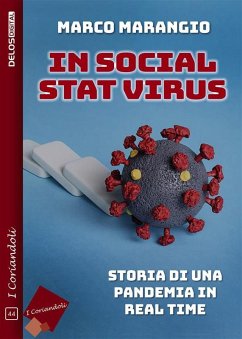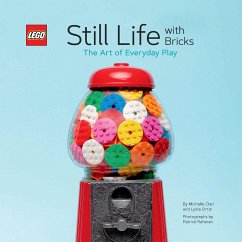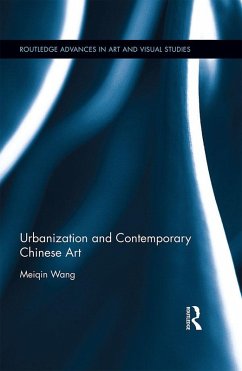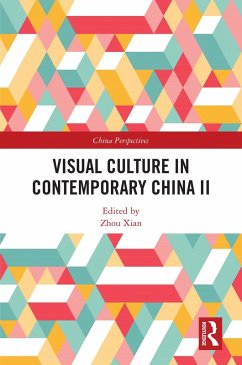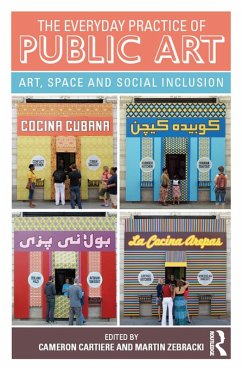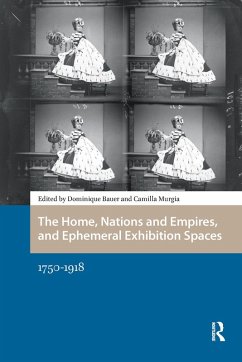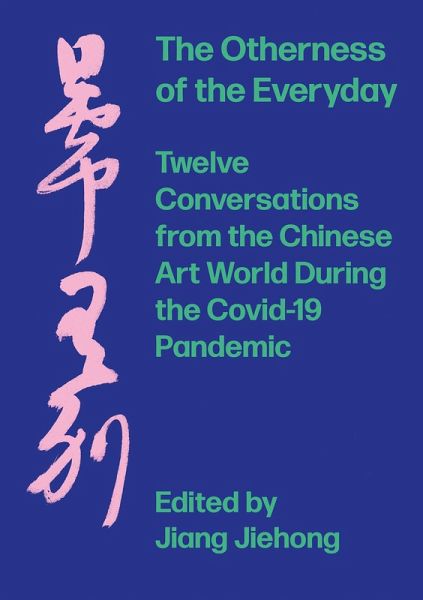
The Otherness of the Everyday (eBook, ePUB)
Twelve Conversations from Chinese Art World During the Pandemic
Redaktion: Jiehong, Jiang
Versandkostenfrei!
Sofort per Download lieferbar
19,95 €
inkl. MwSt.
Weitere Ausgaben:

PAYBACK Punkte
10 °P sammeln!
At the end of 2019 to the beginning of 2020, when the coronavirus first emerged, Wuhan in China became the first city in the world affected by this deadly disease. It then rapidly spread to the entire country, and further on to Europe, America and the rest of the world.During these strange times, we witness the emptiness of streets, squares and cities everywhere; we are estranged from and yet 'connected' to each other. As a response to the pandemic, Jiang Jiehong convened in-conversation talks with figures from different disciplines in the Chinese-speaking world, including anthropology, archit...
At the end of 2019 to the beginning of 2020, when the coronavirus first emerged, Wuhan in China became the first city in the world affected by this deadly disease. It then rapidly spread to the entire country, and further on to Europe, America and the rest of the world.
During these strange times, we witness the emptiness of streets, squares and cities everywhere; we are estranged from and yet 'connected' to each other. As a response to the pandemic, Jiang Jiehong convened in-conversation talks with figures from different disciplines in the Chinese-speaking world, including anthropology, architecture, art, curating, fashion film, literature, media, museum, music and photography.
The twelve high-profile participants in these conversations are Xiang Biao, Zhang Peili, Pi Li, Zhang Zikang, Gu Zheng, Li Lin, Zhang Zhen, Shu Kewen, Jiang Jun, Wang Shouzhi, Chen Danqing and Zhu Zheqin.
These conversations foster new understandings of this present-day crisis; the threat of the invisible, notions of distance and spatialization, separation and isolation, communication and mobility, discipline and surveillance, and community and collectiveness, as well as the increase in conflicts and divisive voices between China and the world. At the same time, these reflections give us the opportunity to re-examine our past 'normality', and to project our future visions of a post-COVID world.
Readership will include those working and studying in the humanities and specifically in the disciplines of the interviewees, and those who have particular interests in contemporary China. The Otherness of the Everyday is also of interest to a more general audience who has experienced the pandemic and is seeking innovative understandings of this global crisis in human history.
During these strange times, we witness the emptiness of streets, squares and cities everywhere; we are estranged from and yet 'connected' to each other. As a response to the pandemic, Jiang Jiehong convened in-conversation talks with figures from different disciplines in the Chinese-speaking world, including anthropology, architecture, art, curating, fashion film, literature, media, museum, music and photography.
The twelve high-profile participants in these conversations are Xiang Biao, Zhang Peili, Pi Li, Zhang Zikang, Gu Zheng, Li Lin, Zhang Zhen, Shu Kewen, Jiang Jun, Wang Shouzhi, Chen Danqing and Zhu Zheqin.
These conversations foster new understandings of this present-day crisis; the threat of the invisible, notions of distance and spatialization, separation and isolation, communication and mobility, discipline and surveillance, and community and collectiveness, as well as the increase in conflicts and divisive voices between China and the world. At the same time, these reflections give us the opportunity to re-examine our past 'normality', and to project our future visions of a post-COVID world.
Readership will include those working and studying in the humanities and specifically in the disciplines of the interviewees, and those who have particular interests in contemporary China. The Otherness of the Everyday is also of interest to a more general audience who has experienced the pandemic and is seeking innovative understandings of this global crisis in human history.
Dieser Download kann aus rechtlichen Gründen nur mit Rechnungsadresse in A, D ausgeliefert werden.






